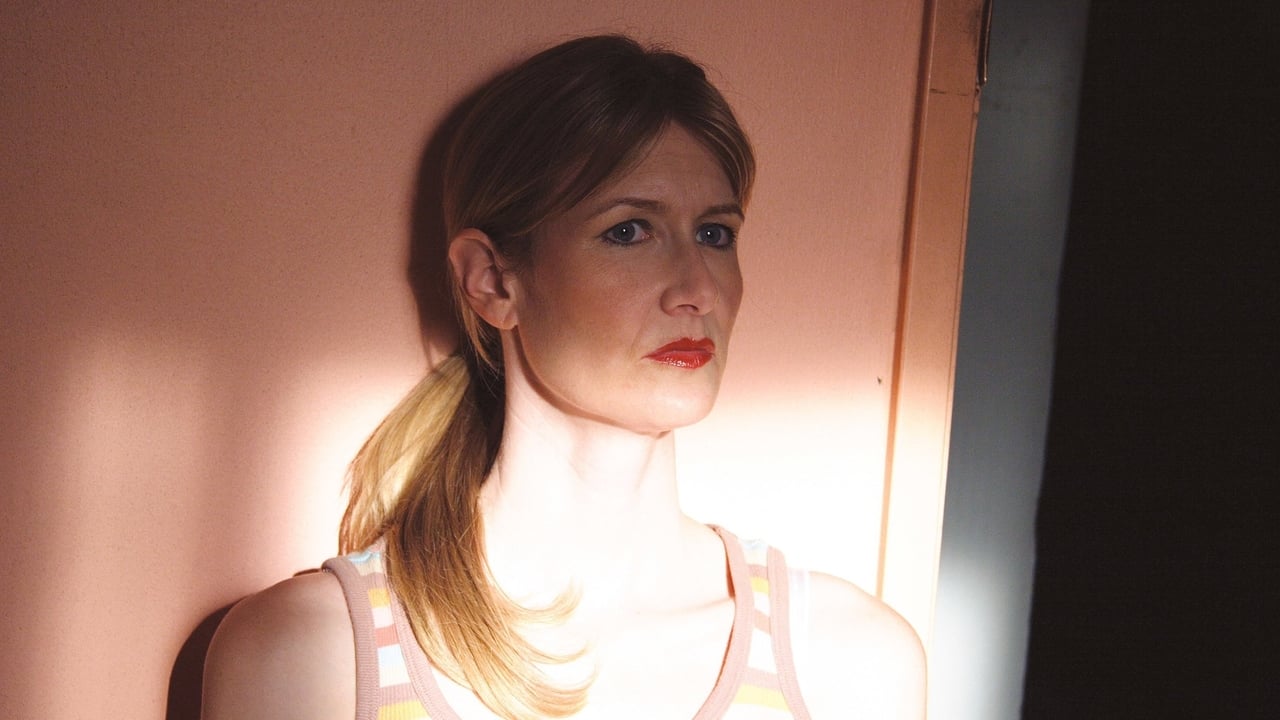

I like movies that are aware of what they are selling... without [any] greater aspirations than to make people laugh and that's it.
... View MoreThe acting is good, and the firecracker script has some excellent ideas.
... View MoreI think this is a new genre that they're all sort of working their way through it and haven't got all the kinks worked out yet but it's a genre that works for me.
... View MoreOne of the best movies of the year! Incredible from the beginning to the end.
... View MoreThis is officially the worst thing I have ever seen on the screen. I mean including anything you can see on any screen, from those error messages, windows blue screen to cheap action movies, bad advertisements, and even those annoying physically damaged cellphone screens, this "Inland Empire" is the worst.There is nothing, a whole 3 hours of nothing. The more some Lynch fanboys try to extract something from it, the more ridiculous it gets. And don't get me wrong, I gave 8 stars to some of his other works so this has Nothing to do with a name. The fact is, the movie is a piece of garbage that is an insult to everyone who watches it.Don't waste your time.
... View MoreMore pretentious crap from David Lynch. I used to be fan, enjoying Blue Velvet, The Elephant Man, Wild at Heart (especially) and Twin Peaks (the series, not the movie). Then he thought he would make any old weird meaningless stuff and people would think it was brilliant, because they didn't understand it. Judging by the (good) average ratings for Mulholland Dr, Lost Highway and this, he has succeeded. (Straight Story was great, but was more conventional, and a one-off).Avoid like the plague. Boring, pretentious drivel of the highest order.
... View MoreI thought 'Inland Empire' has a basic story, about a curse. 'Axxon n' was a Polish story of a prostitute that evolved into murder, allegedly cursed and sympathetically passed on. At the start there is a scene from the play, with the actors faces obscured enigmatically. A film was attempted of it, '4/7' , clips of which are shown periodically, and the curse was passed along. Finally 'On High in Blue Tomorrows' was made based on the other stories and the star, Nikki Grace (Laura Dern), comes to realize how the curse is working and actually ends it. I am guessing that David Lynch added some dream imagery, mostly Nikki's. It seemed to me that one of the victims of the 4/7 movie, a young girl, apparently a prostitute, is trapped in some sort of limbo, in a room and has a metaphorical view of how the curse is working. She also had contact with some sort of hypnotist wizard who seems to be the protagonist in all the stories. Nikki Grace seems to come into psychic contact with this ghost girl, who tells her if she folds a slip over, burns a hole in it and looks through the hole she will see visions that explain some of the mysteries. Nikki does this. While filming 'On High in Blue Tomorrows' her costar Devon (Justin Theroux) also gets the feeling about the curse as Nikki tries to explain it to him. She is having constant visions of the original story 'Axxon n', and tries to explain it to Devon who really wants to understand but doesn't quite, although their lives seem to be somewhat of a parallel to their movie script. I thought Nikki was also having dreams about her situation, symbolized by some rabbit people in a Room 47 who say symbolic things about the stories. Devon and Nikki are also having an affair and their spouses suspect and both plan on doing something about it.Clever, eerie story I thought.
... View MoreA David Lynch film is a tightrope act of sorts. They're all a little abstract, a little bit mystical, but remaining (usually) is a looming mystery that is never solved; the viewer must be ready to interpret the abstruse puzzle presented to them. In a great Lynch film, Mulholland Dr. for example, a profound characterization can act as a backbone to the many head spinning detours that dawdle in the celluloid. Without one, though, a Lynch film can become intolerable, masturbatory rather than dazzling, a series of puzzle pieces that don't fit anywhere besides his own mind. He is perhaps the definitive hit-or-miss filmmaker — when he hits, his baffling ideas are seductive, lingering in our memory like our very first run-in with Rita Hayworth's Gilda; but when he misses, we're presented with a nightmarish landscape that doesn't make a whole lot of sense, doesn't go anywhere, and doesn't have much in the way of meaning. (And a Lynch film is generally long, making insufferability even more insufferable as the images go on and on and on and on )Simply put, Inland Empire is one of David Lynch's most unbearable movies. It's his first film shot completely digitally, done so with a Sony DCR- VX1000 camcorder; the images, in return, are fuzzy and textural. Some, especially Lynch, find this photographic technique to hold more value in terms of enigma and subversion, but I, possibly in the minority, think that this experiment is a downfall. His images are so outrightly peculiar (only he could sell the idea of three people in rabbit suits living in an apartment together in sitcom bliss) that the cheapness of the digital camera makes his once lush pictorial instincts read like an experimental student short. Before, the lavishness of film made diversions into the freakish more of a surprise; here, Lynchian punches no longer hold the shock the once did. This shouldn't suggest that his cinematic mastery is waning — it's the fault of the camera, not his.Supposedly, Inland Empire is about Nikki Grace (Laura Dern), a has-been actress who has just received a part in a movie that could revitalize her once strong career. Her co-star is known womanizer Devon Berk (Justin Theroux), her director the respected Kingsley Stewart (Jeremy Irons). Minutes into the rehearsal process is it revealed that the project is thought to be cursed — it was supposed to be made decades ago, but the actors tragically died during the filmmaking process. Following this revelation, strange things start to occur: Nikki and Devon begin to mimic the lives of the characters they're playing, Sue Blue and Billy Side, and Nikki, desperate as she is to succeed, begins experiencing situations that can only be described as hallucinatory.I say "supposedly" when providing the plot summary because Inland Empire revolves around this storyline for only the first act, possibly even less. It starts off intriguingly, with the same sort of luminous ambiguities of Lost Highway, until it descends into a labyrinth of entangled phantasms. For a while, the delusions are evocative (the audacious pairings with experimental music are especially fascinating), but at three hours, Inland Empire eventually keels over and turns into an unappetizing smörgåsbord of Lynchian rejects. As the story was never interesting enough to begin with, interpretation is left untouched; we're either frustrated or stimulated, mostly the former.The one thing to celebrate in Inland Empire is Laura Dern, in a fearless performance. Her character(s) is hardly defined, but Dern gives us a reason to gaze upon her face with utter enthrallment. She wanders around the maze Lynch places her in the middle of; Dern is so breathtaking that, once in a while, she deceives us into thinking that the material is solid rather than flimsy. More or less, Inland Empire is flimsy. Lynch wrote the script as filming went on (seriously), and nothing ever commences from it. He is a great director, but nothing is worse than taking an audience for granted, especially when that audience has to meander through a film for 180 minutes. Read more reviews at petersonreviews.com
... View More